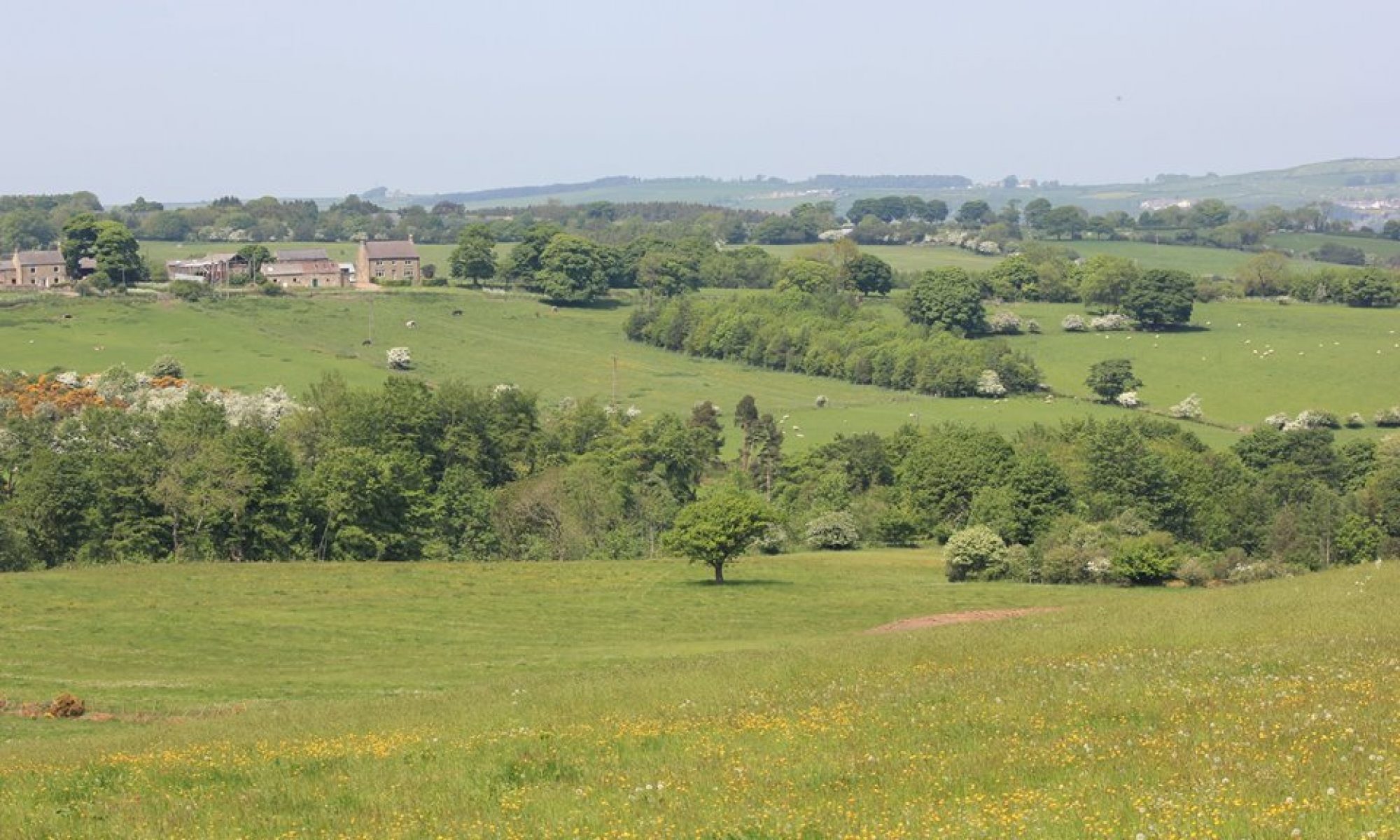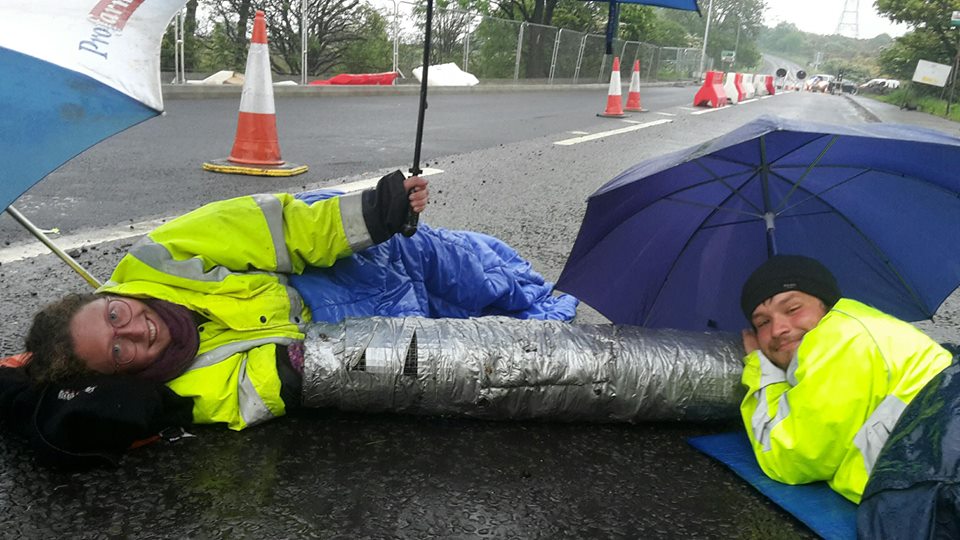Protestors block road for more than 28 hours over the weekend to stop work on access road of opencast site in County Durham
Protestors fighting against a new opencast coal mine in County Durham have blocked the road in a rolling resistance for more than 28 hours to prevent the mining company, Banks group, to finish building the access road. At 8:30 pm on Saturday 2nd of June, the first pair of protestors were blockading with a ‘lock-on’ device on the closed lane of the A692 between Leadgate and Dipton, in front of the Bradley opencast site. No traffic was affected.
At 6pm the next day, two new protestors locked-on in the same lane whilst the original pair was still in place. All protestors have now been arrested. The protesters prevented road works from 8:30 pm on Saturday; the work recommenced on Monday at 7 pm.
Simon Daniels, one of the protestors locked-on says “I spent four years studying the science behind climate change. Today, I am taking the data to its logical implications. Coal has got to stop. My actions are necessary.”
Protestors say that it is essential to stop Banks Group from building the access road to ensure that the opencast does not go ahead. They say that the mine will have devastating effects on the health of the community as well as irreversible impacts on the environment. A number of protestors, including local residents, have taken direct action to delay Banks in their work.
At yesterday’s action, the police chose not to manhandle the first pair of protestors, and instead called in the help of the fire brigade rather than that of a specialist cutting team, to free the arms of the protestors who were locked-in.
Campaigners disapprove of the involvement of the fire brigade: they argue that a specialised cutting team should have been dealing with the ‘lock-on’ devices as the lives of the protestors were not endangered, but that the police have refused to find specialist cutters. Robyn Clogg, a local resident of High Stables, said: “After speaking to the Secretary for Durham Fire Brigade Union, it was obvious that the Union did not feel that this was an appropriate use of their time and resources.”
The second pair of protestors arrived on site at 6pm yesterday. The police chose to carry the pair to the pavement while their arms were still attached in the ‘lock-on’ device. Supporters on the road were concerned that this move would have put the protestors’ health and safety at risk. The protestors freed themselves from the lock-on a bit after twelve.

